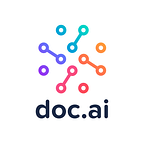By Sam De Brouwer, Cofounder and COO at doc.ai
Most of you know me as the cofounder and COO at doc.ai, but my healthcare adventure started with my youngest son. This was the year that his life, and the life of my entire family changed forever. It was back in 2004, he was 5 years old. I should have seen the signs; however, I did not realize how intertwined his reality and fantasy were about being a superhero who could fly to the moon. He thought he could fly, and this ended in a terrible accident, a fall of 12 meters with as result a severe brain injury leaving him in a coma for months before he could start his lifelong rehabilitation while coping with a series of serious medical issues. This was when I brutally realized that medicine operates a lot through a trial and error method, and it felt crazy.
We all have a healthcare story, what is yours? Most of the time it is about our own conditions or about our parents developing common elderly problems, or in the most unexpected cases it is about our kids suffering from chronic illnesses or rare diseases leaving us with tons of unanswered questions. While medicine can be extraordinary — I admire the doctors who have saved my son’s life — one of my big lessons the last 15 years is that medicine is a huge research project involving patients and caregivers.
Most of us spend hours studying medical literature as well trying to connect with others. One of my big efforts has been to connect with patients like me or my son. We have questions, and we need answers. We track our symptoms, we log in our data, and we look for signals while we are surrounded by noise. It hit me a few years ago when one of my friend approached me with an excel sheet she had been using for years to collect and log her daughter’s epileptic seizures. I understood what she meant because my son suffers from seizures too, and I was trying to do the same thing. Also she asked me if I could build an algorithm to find patterns. Back then, unfortunately, I could not help her. It was 2012.
Today I can. For the last 2 years, our doc.ai team has been building what I like to call a medical research companion enabling patients to collect all their medical data on their phone using AI powered tools such as the medical selfie, as well as give them the opportunity to join data trials, real world data driven medical research projects that matter to them and their beloved ones.
It is free, the data is yours, and it is fully under your control. Simply put, this is what it does: in a few minutes you can collect all your medical data, choose your research project, and check your eligibility while the data matching is automatically done in a few seconds for you to join the research. The rest is tracking, and getting insights and rewards.
Since this summer, the doc.ai medical research companion is live on the App Store, and we’re seeing the first hundreds participants enrolling into research. What would have taken years is now taking weeks.
Our team of data scientists is starting to look into the data, and soon participants will start receiving their first insights via the app. These are the early days of this ideal partnership between patients, doctors and researchers, where we can accelerate research with entire communities of patients.
My son did not make it to the moon, but he is alive and kicking, showing us every day what a superhero is made of. After 15 years, we still have so many unanswered questions. So in my world, by accelerating every trial, by removing every error from the equation, and by making every data collection event smarter and faster, we can enjoy a very simple big win.
Download the doc.ai medical research companion here , start using it and tell me what you think! Check our website here or email me at sam@doc.ai.
